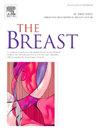Early decision regret and its relationship with decision participation among breast cancer patients undergoing surgery
IF 7.9
2区 医学
Q1 OBSTETRICS & GYNECOLOGY
引用次数: 0
Abstract
Purpose
Decision regret is a negative emotion that persistently impacts the patients’ quality of life and future decision-making process. This study aimed to explore the early decision regret among breast cancer patients undergoing surgery and its relationship with their perceived importance and actual participation in decision-making.
Methods
A cross-sectional study was conducted from August 2024 to March 2025. Breast cancer patients undergoing surgery were recruited by convenience sampling. All the participants completed the decision regret scale and the questionnaire measuring perceived importance of participation and the degree of participation in decision-making about treatment, in one month after they received surgery.
Results
A total of 213 breast cancer patients undergoing surgery participated in this study. Among them, 85.4 % (n = 182) experienced early decision regret, with 43.2 % of them (n = 92) having a low level of decision regret and 42.2 % (n = 90) having a high level of decision regret. Their decision regret was significantly associated with their actual participation in decision-making (B = 8.246, 95 % CI: 2.037–14.455, p = 0.009). but not with their perceived importance of participation. The lower the extent of participation in decision-making, the higher the level of decision regret.
Conclusion
The majority of the breast cancer patients receiving surgery experienced early decision regret. It is associated with their actual participation in decision-making. Promoting breast cancer patients’ participation in their own decision-making, such as patient-centered communication and a shared decision-making model, may have the potential to alleviate their regrets about their early decisions.
乳腺癌手术患者早期决策后悔及其与决策参与的关系
目的决策后悔是一种持续影响患者生活质量和未来决策过程的负性情绪。本研究旨在探讨乳腺癌手术患者的早期决策后悔及其与感知重要性和实际参与决策的关系。方法于2024年8月至2025年3月进行横断面研究。采用方便抽样的方法招募乳腺癌手术患者。所有参与者在手术后一个月内完成决策后悔量表和参与感知重要性及参与治疗决策程度的问卷调查。结果共213例接受手术治疗的乳腺癌患者参与了本研究。其中,85.4% (n = 182)的人经历了早期决策后悔,其中43.2% (n = 92)的人经历了低水平的决策后悔,42.2% (n = 90)的人经历了高水平的决策后悔。决策后悔与实际决策参与显著相关(B = 8.246, 95% CI: 2.037 ~ 14.455, p = 0.009)。但与他们认为的参与的重要性不同。决策参与程度越低,决策后悔程度越高。结论大多数乳腺癌患者在接受手术后早期就有后悔的感觉。这与他们实际参与决策有关。促进乳腺癌患者参与自己的决策,例如以患者为中心的沟通和共享决策模式,可能有可能减轻他们对早期决策的后悔。
本文章由计算机程序翻译,如有差异,请以英文原文为准。
求助全文
约1分钟内获得全文
求助全文
来源期刊

Breast
医学-妇产科学
CiteScore
8.70
自引率
2.60%
发文量
165
审稿时长
59 days
期刊介绍:
The Breast is an international, multidisciplinary journal for researchers and clinicians, which focuses on translational and clinical research for the advancement of breast cancer prevention, diagnosis and treatment of all stages.
 求助内容:
求助内容: 应助结果提醒方式:
应助结果提醒方式:


